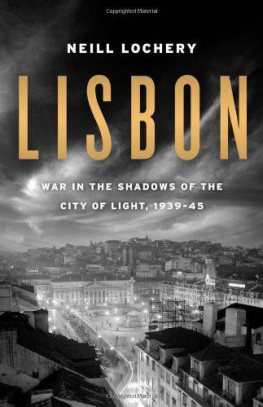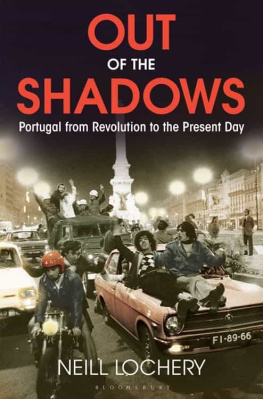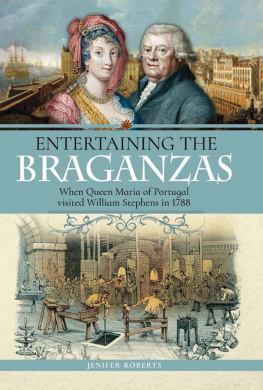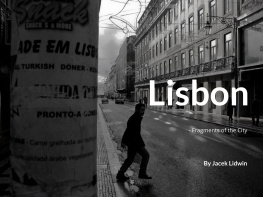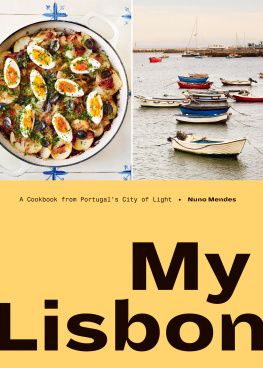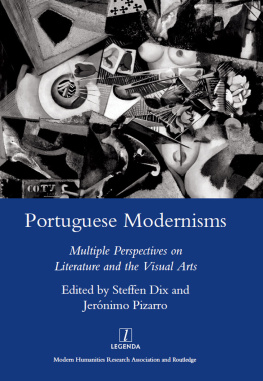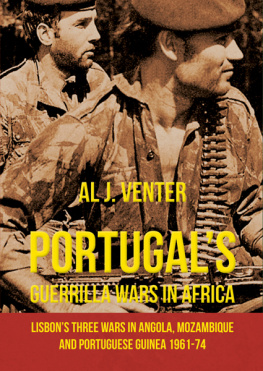Table of Contents
For Emma, Benjamin, and Hlna
Introduction
A T THE END OF THE MOVIE CASABLANCA, AS RICK Blaine and Captain Louis Renault head off to start their beautiful friendship by joining the Free French Garrison at Brazzaville, the plane carrying Victor Laszlo and Ilsa Lund takes off into the fog. It is to neutral Lisbon that they are headed with their letters of transit. In real life, the city of Lisbon during World War II more than resembled the film set; to many people who worked in the city during the latter stages of the war, Lisbon became affectionately known as Casablanca II. The real-life version had all the ingredients of the fictional storyline: broken romances; desperate refugees trying to obtain the correct paperwork and selling the family jewels to finance their onward passage; a thriving black market as supply dictated that the prices of diamonds and other rare stones fell to record low levels; cafs and hotel bars full of refugees and spies scattered across the city center and along Lisbons coastline resorts.
There was also a real-life Captain Renault in Lisbon: the greatly feared head of the Portuguese Secret Police, Captain Agostinho Loureno. Senior figures of the German Reichsbank were in the city from time to time, busy arranging payment terms for Portuguese goods. The city had the last great gambling house in wartime Europe, located along its coastline at Estoril.
During the years of World War II, Lisbon was at the very center of world attention, and was the only European city where both the Allies and the Axis powers openly operated. Lisbons story was set within the context of a country that was frantically trying to hold on to its self-proclaimed wartime neutrality, but which, in reality, was increasingly caught in the middle of the economic, and naval, wars between the Allies and the Nazis. It was not, however, a conventional tale of World War II: Barely a shot was fired, or a bomb dropped. Instead, it was a tale of intrigue, betrayal, opportunism and double dealing, all of which took place in the Cidade da Luz (City of Light), and along its idyllic Atlantic coastline.
Ultimately a relatively poor European country not only survived the war physically intact, but came out at the end of it in 1945 much wealthier than it had been when war had broken out in 1939. Although much of this wealth was considered by the Allies to be ill-gotten gains, the Portuguese were allowed to retain the vast majority of it as post-1945 Cold War political realities reemphasized the importance of the country, and its Atlantic Islands (the Azores), to the cause of the Western Powers.
Lisbon was a city in which an apparent German plot to kidnap the Duke and Duchess of Windsor was foiled. They were among the more exotic refugees, many of them Jewish, who flooded into the city seeking a passage to the United States or Palestine on one of the ships that sailed from the neutral port, or for the super rich, via the Azores on the Pan-American Boeing Clipper flying boat service to New York. Most refugees, however, had to wait months, or even years, in the city before securing their onward passage. On the run from the Germans since the fall of France in the summer of 1940, many of the refugees survived on a clandestine network of financial and organizational support, which originated from the offices of wealthy American Jews in New York City. The not so fortunate had to rely on the limited help from the British, the Portuguese authorities, and locally run rescue organizations.
Allied and German agents operated openly in the city and monitored every move of the enemy. Their role was to log enemy shipping movements in and around the busy, deep-water port of Lisbon, to spread propaganda, and to disrupt the supply of vital goods to the enemy. Among the agents who visited Lisbon was a young Ian Fleming, busy devising Operation Golden Eye and playing blackjack at the Estoril Casinoa location that was to later provide the inspiration for a James Bond film. The Iberian Desk of the British Special Operations Executive (SOE) was led by the brilliant spy chief, and traitor, Kim Philby, who controlled the British agents operating in the city from London. The writers Graham Greene and Malcolm Muggeridge worked at the same desk as Philby, before Muggeridge was briefly posted to Lisbon and eventually on to the Portuguese colonies.
As the British and German agents watched each other, their movements were, in turn, shadowed and recorded by Captain Agostinho Lourenos Portuguese secret police, the Polcia de Vigilncia e Defesa do Estado (PVDE). Lourenos reports and decisions determined which espionage activities in the city the authorities tolerated, and which they did not. As a number of British, German, and Italian secret agents, and journalists (including the local correspondent of the London Times ) found to their cost, if you tried to cross Captain Loureno, your stay in Portugal was severely shortened.
Lisbon was also the end of the line for escaped Allied prisoners of war (POWs) who arrived in the city to be flown back to England on the three-times-per-week BOAC-operated flights from Lisbon to Whitchurch, near Bristol. The passenger lists of the flights were a whos who of the senior network of British spies in the city, as well as shadowy Allied industrialists involved in the trade war with the Germans. Competition for places on the planes was strong with various British agencies fighting for the limited number of seats. There were also instances when wealthy members of Lisbons large Anglo community were caught trying to use the service to transport their maids down to Lisbon. The much loved British Hollywood actor, and star of Gone with the Wind, Leslie Howard, would fatefully take one of those flights. Allied and Axis agents operated at the airport twenty-four hours a day bribing local customs officials to gain access to the cargo and passenger lists of the enemy. Both BOAC and Lufthansa operated flights out of the citys airport, with their aircraft parked almost next to one another on the tarmac. Writing in 1944, the chief BOAC operations officer in the city described the daily scene at Lisbons airport as being like the movie Casablanca , but twentyfold. During the hours of darkness, Lisbon Airport was highly susceptible to mist from the river, which added to its atmospheric mystery.
Central to the story of Lisbon is the Portuguese leader, Antnio de Oliveira Salazar, who had come to power with the establishment of the Estado Novo in 1932. For Salazar, World War II presented a potentially lethal challenge to his regime, and to Portugal in general. Such was the concentration that Salazar devoted to steering Portugal through the war that, in addition to serving as prime minister for the duration of the war, he also served as minister of foreign affairs, minister of war, minister of the interior, and for the first part of the war, minister of finance. Salazar viewed it as his personal mission, and challenge, to prevent Portugal from being dragged into the war and repeating the mistakes of World War I.
Salazar believed that World War II brought two major threats to Portugal: a potential German, or Spanish invasion, and the possibility of Portugal losing its empire. Portugal had backed General Franco in the Spanish Civil War: Lisbon was used as a supply port for Francos forces, and Salazar sent Portuguese brigades to fight on Francos side. Despite this, there was still a feeling in Lisbon that Franco, and some of his key supporters, harbored territorial ambitions over Portugal. Recent unpublished documents indicate the existence of very detailed Spanish military plans for the invasion of Portugal during World War II.

